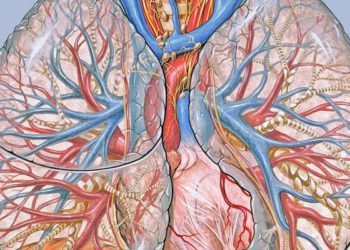Wellness Check: Spirituality
Spiritual interventions may be associated with improved psychological and spiritual outcomes
1. This systematic review found that despite the variability in spiritual interventions and patient outcomes, nearly all studies reported improved psychological and spiritual outcomes following nursing spiritual interventions.
2. Increased spiritual well-being was associated with existential based interventions and mixed interventions, whereas reduced levels of anxiety and depression were reported for existential, religious and mixed interventions.
Evidence Rating Level: 1 (Excellent)
Patients may become more involved with religious practices in clinical settings when they are faced with uncertainty of events. As nurses are often the ones who spend the greatest amount of time with patients, they are excellent candidates to offer spiritual interventions to such patients. Unfortunately, the role of these interventions are not well understood due to the diversity of implementation. As a result, the objective of the present systematic review was to synthesize the current evidence regarding nurses’ delivery of spiritual interventions and their impact on patient outcomes.
From 1005 screened records, 16 studies (n=1079 participants) were included from database inception to June 2020. Eligible studies required the evaluation of spiritual interventions (existential, religious, or mixed) delivered by nurses on psychological (e.g. anxiety, depression) and spiritual (e.g. spiritual wellbeing, quality of life) outcomes. Studies were excluded if interventions were provided by teams comprised of non-nursing colleagues. Quality assessment was performed using the Standard Quality Assessment Criteria for Evaluating Primary Research Articles (QualSyst tool). Narrative synthesis was used to group outcomes of interest to spirituality within the nursing context.
Results demonstrated that nearly all studies reported improved psychological and spiritual outcomes following the nursing spiritual interventions. Spiritual well-being was most associated with existential based interventions and mixed interventions, whereas levels of anxiety and depression were most associated with existential, religious and mixed interventions. However, the study was limited by its inclusion of 7 quasi-experimental studies which increased the risk of selection bias. Despite this, the present study presents a valuable contribution in understanding the impact of spiritual interventions on patient outcomes.
1. There was a significant association (positive or negative depending on demographic factors) between religiosity and spirituality (R/S) and medication adherence in patients with cardiovascular diseases (CVD).
2. However, this systematic review found there were no studies reporting on acute CVDs such as coronary artery disease, angina or myocardial infarction.
Evidence Rating Level: 1 (Excellent)
CVDs are associated with polypharmacy and approximately 50% of patients are non-adherent to their medications, which in turn, leads to poorer outcomes. R/S aims to approach treatment from a holistic manner which may be beneficial to patients suffering from such diseases. Past studies have reported a relationship between R/S and medication adherence in patients diagnosed with CVDs; however, none of these have been comprehensive systematic reviews. Consequently, the objective of the present systematic review was to summarize the literature on the relationship between R/S and medication adherence in patients with CVD.
From 417 screened records, 11 studies were included from August 2018 to September 2018. Studies were included if they measured both patients’ R/S and medication adherence. Studies were excluded if they were not research related. Quality assessment was performed using the Crowe Critical Appraisal Tool (CCAT). Results of the study were synthesized using a qualitative narrative synthesis. The tools used to measure R/S and medication adherence varied.
Results demonstrated that there was a significant association (positive or negative depending on demographic factors) between religiosity and spirituality (R/S) and medication adherence in patients with cardiovascular diseases (CVD). Furthermore, there were no studies reporting on acute CVDs such as coronary artery disease, angina, or myocardial infarction. However, this study was limited by the inclusion of studies conducted primarily in the United States, which may not be representative of all religious affiliations. Despite this, the findings of the present review have provided insights on knowledge in the literature which will help further explore the influence of R/S on patient medication adherence.
Meditation may provide medical benefit for various health outcomes
1. Meditative therapies appear to be more beneficial for improving sleep quality, fatigue management and depressive symptoms, especially in patients suffering from mental disorders.
2. Furthermore, yoga-based interventions showed a slightly higher positive outcome compared to mindfulness-based interventions and transcendental/mantras/spiritual meditation.
Evidence Rating Level: 1 (Excellent)
As a practice, meditation has been increasing over the past few years. Some of the reported health benefits include blood pressure and glucose regulation, as well as stress reduction. Given these benefits, physicians may consider incorporating meditation as part of their treatment plans; however no systematic analysis shows the status of meditation’s clinical application in patients. Consequently, the present systematic review seeks to integrate the results from randomized controlled trials (RCTs) with meditative interventions in patients with a wide range of diseases.
Of 4855 identified records, 104 RCTs (n=10,139) were included from database inception to June 2021. Studies were included if participants had diseases at baseline and evaluated the therapeutic efficacy of meditation. The quality of the RCTs was assessed using the Jadad scale. Studies were excluded if they had a Jadad score of less than 3 points. 3 groups of meditation interventions were evaluated: yoga-based, mindfulness and transcendental/mantras/spiritual meditation. Effectiveness of the meditation intervention was judged based on the data of the original articles.
Results demonstrated that, overall, meditative therapies appear to be more beneficial for improving sleep quality, fatigue management and depressive symptoms especially in patients suffering from mental disorders. Furthermore, when assessing specifically which interventions were most beneficial, yoga-based interventions showed a slightly higher positive outcome compared to mindfulness-based interventions and transcendental/mantras/spiritual meditation. However, the present study was limited by the authors use of a single database (PubMed) which limited the available evidence. Despite this, these results suggest that there exists an overall benefit of meditation in patients.
Several factors influence health programs conducted in the African American Church
1. This systematic review identified several facilitators and barriers to health programs conducted in the African American Church, such as intrapersonal (e.g. knowledge and attitudes) and organizational (e.g. formal or informal rules) factors.
2. However, this systematic review did not find articles which identified policy as a facilitator or barrier in impacting health programs within the church.
Evidence Rating Level: 2 (Good)
The African American (AA) church has played a crucial role in promoting health programs (e.g. nutrition, HIV/AIDS, heart disease, breast cancer) for its members. Prior studies have assessed the perspectives of church leaders on health programs; however, there has yet to be an analysis exploring the facilitators and barriers in conducting adult health programs within AA churches using a socioecological perspective. As a result, the objective of the present systematic review was to identify the perception of pastors and church leaders on the facilitators and barriers in providing adult health programs using a socioecological model (SEM).
From 288 screened records, 29 studies were included from 1995 to 2019. Studies were included if they took place in the United States, if they had AA church leaders or pastors as study participants, and if they identified facilitators and barriers within the study. Studies were excluded if they took place internationally. Risk of bias in individual studies was assessed using the Mixed-Method Appraisal Tool (MMAT). The socioecological model was used to stratify facilitators and barriers found in church-based health promotion programs and interventions.
Results demonstrated that for disease or behavior-specific health programs, facilitators and barriers were primarily related to intrapersonal and organizational factors. With respect to health promotion, facilitators and barriers were primarily organizational. Furthermore, no articles identified policy as a facilitator or barrier in impacting health programs within the church. However, the present study was limited by the inclusion of only 4 databases. Nonetheless, the results demonstrated that evidence is lacking with respect to policy as a factor influencing health programs which could inform further research on this topic.
Image: PD
©2022 2 Minute Medicine, Inc. All rights reserved. No works may be reproduced without expressed written consent from 2 Minute Medicine, Inc. Inquire about licensing here. No article should be construed as medical advice and is not intended as such by the authors or by 2 Minute Medicine, Inc.







